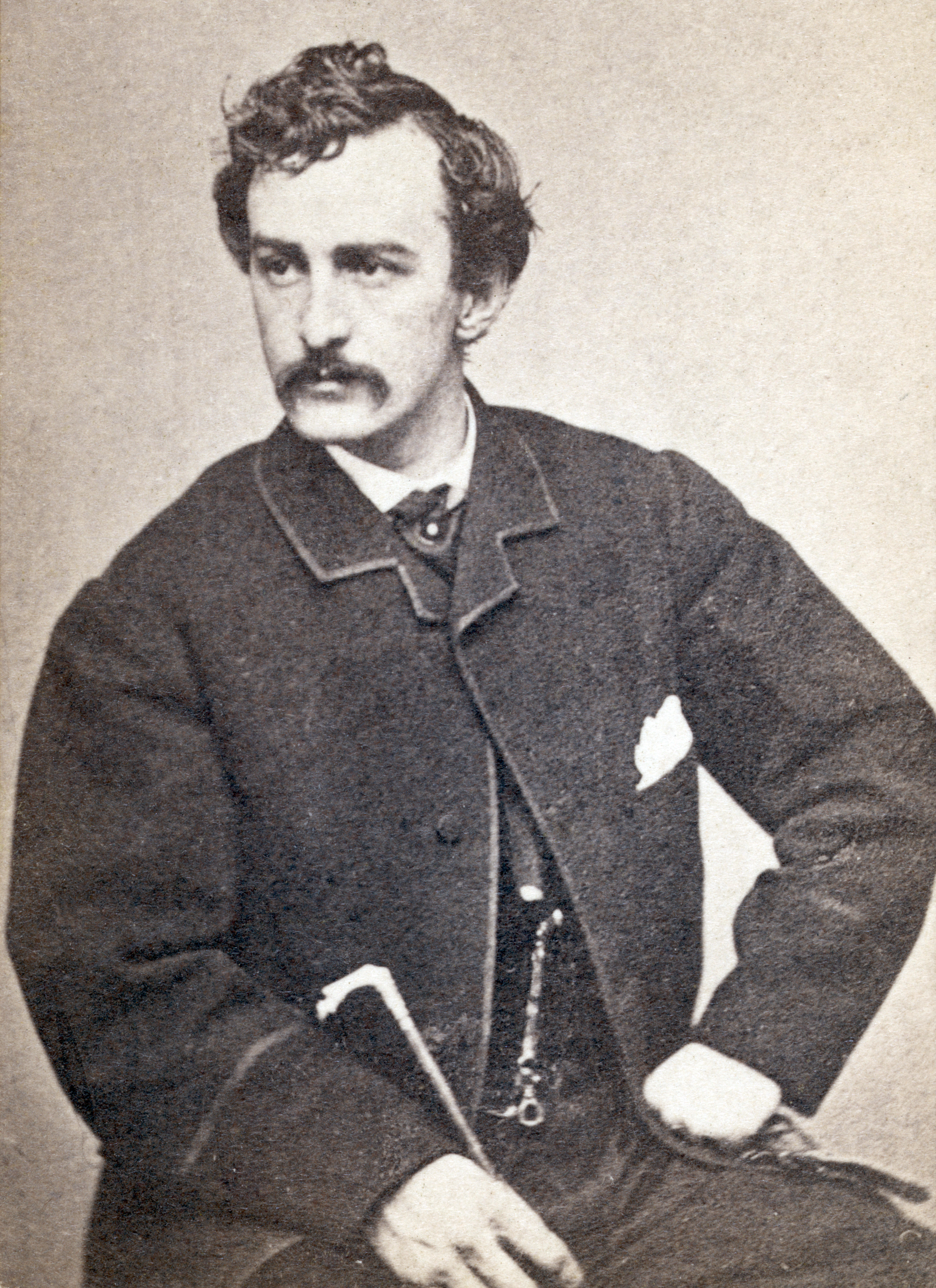
John Wilkes Booth
John Wilkes Booth (May 10, 1838 – April 26, 1865) was an American stage actor who assassinated United States President Abraham Lincoln at Ford's Theatre in Washington, D.C., on April 14, 1865. A member of the prominent 19th-century Booth theatrical family from Maryland,[1] he was a noted actor who was also a Confederate sympathizer; denouncing President Lincoln, he lamented the then-recent abolition of slavery in the United States.[2]
Not to be confused with John Wilkes.
John Wilkes Booth
May 10, 1838
April 26, 1865 (aged 26)
Gunshot wound
Green Mount Cemetery, Baltimore, Maryland
- J.B. Wilkes
- Wilkes
Actor
1855–1865
Originally, Booth and his small group of conspirators had plotted to kidnap Lincoln to aid the Confederate cause. They later decided to murder him, as well as Vice President Andrew Johnson and Secretary of State William H. Seward.[3] Although the Army of Northern Virginia, commanded by General Robert E. Lee, had surrendered to the Union Army four days earlier, Booth believed that the Civil War remained unresolved because the Army of Tennessee of General Joseph E. Johnston continued fighting.
Booth shot President Lincoln once in the back of the head. Lincoln's death the next morning completed Booth's piece of the plot. Seward, severely wounded, recovered, whereas Vice President Johnson was never attacked. Booth fled on horseback to Southern Maryland; twelve days later, at a farm in rural Northern Virginia, he was tracked down sheltered in a barn. Booth's companion David Herold surrendered, but Booth maintained a standoff. After the authorities set the barn ablaze, Union soldier Boston Corbett fatally shot him in the neck. Paralyzed, he died a few hours later. Of the eight conspirators later convicted, four were soon hanged.
Business ventures
Booth invested some of his growing wealth in various enterprises during the early 1860s, including land speculation in Boston's Back Bay section.[62] He also started a business partnership with John A. Ellsler, manager of the Cleveland Academy of Music, and with Thomas Mears to develop oil wells in northwestern Pennsylvania, where an oil boom had started in August 1859, following Edwin Drake's discovery of oil there,[63] initially calling their venture Dramatic Oil but later renaming it Fuller Farm Oil. The partners invested in a 31.5-acre (12.7 ha) site along the Allegheny River at Franklin, Pennsylvania in late 1863 for drilling.[63] By early 1864, they had a producing 1,900-foot (579 m) deep oil well named Wilhelmina for Mears' wife, yielding 25 barrels (4 kL) of crude oil daily, then considered a good yield. The Fuller Farm Oil company was selling shares with a prospectus featuring the well-known actor's celebrity status as "Mr. J. Wilkes Booth, a successful and intelligent operator in oil lands".[63] The partners were impatient to increase the well's output and attempted the use of explosives, which wrecked the well and ended production.
Booth was already growing more obsessed with the South's worsening situation in the Civil War and angered at Lincoln's re-election. He withdrew from the oil business on November 27, 1864, with a substantial loss of his $6,000 investment ($1,168,851 today).[63][64]